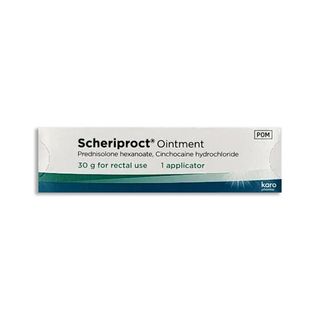
Haemorrhoids & Piles
Painful and itchy, haemorrhoids (also known as piles) are very uncomfortable. You’re most likely to have haemorrhoids if you’re aged 45 to 65, are pregnant, overweight or do things that make you strain, like lifting heavy objects. You’re also more prone to piles if you have a family history of the condition.
But don’t worry, haemorrhoids are pretty common, and our expert team knows exactly how to treat painful piles. We can advise you on the right cream or ointment to soothe your symptoms, and give you tips on staying hydrated and eating a high fibre diet to help prevent haemorrhoids in the future.
Haemorrhoids & Piles Treatments
 Scheriproct Ointment For Haemorrhoids£24.95
Scheriproct Ointment For Haemorrhoids£24.95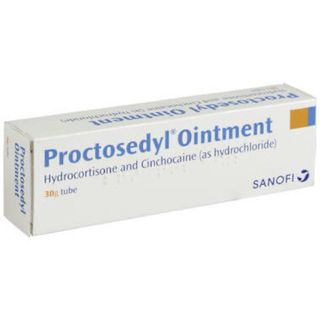
Proctosedyl Ointment
Proctosedyl Ointment£29.99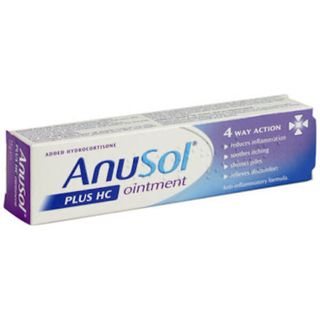
Anusol Plus HC
Anusol Plus HC£6.69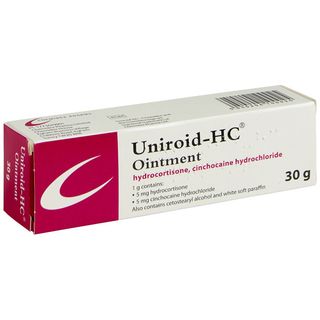
Uniroid HC Ointment
Uniroid HC Ointment£19.99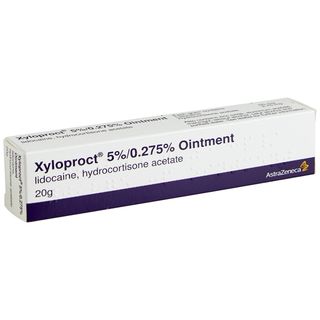
Xyloproct Ointment
Xyloproct Ointment£24.95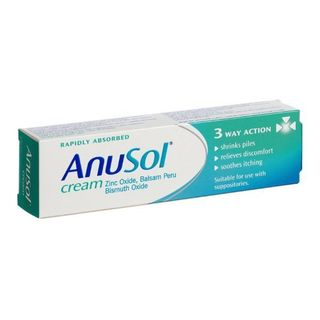
Anusol Cream 43g
Anusol Cream 43g£6.49
Germoloids Suppositories
Germoloids Suppositories£7.99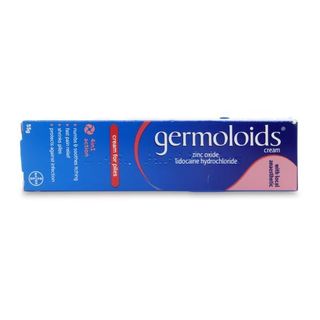
Germoloids Cream 55g
Germoloids Cream 55g£7.59
Start your assessment for Haemorrhoids & Piles
Don't wait to get the medical help you need.
Once you complete a short online assessment about your condition, you will be able to select your preferred treatment and quantity from a list of appropriate options for you.
- Reviewed by our UK-based medical team
- Takes less than 3 minutes to complete
- Approved treatments dispatched same day (before 3pm)
Ordering as easy as 1, 2, 3
1. Find the ideal treatment
2. Get a free consultation
3. Enjoy speedy delivery
Advice for Haemorrhoids & Piles
What are Haemorrhoids and what causes them?
Haemorrhoids are also known as piles. They occur when blood vessels around the anus and rectum swell up and enlarge, creating a hanging lump that can protrude from the anus. This lump may need to be pushed back in after going to the toilet. There are several degrees of piles, in most cases the symptoms are mild and relatively painless and often clear up on their own. In cases where piles are causing some discomfort, for example an itch or soreness around the anus, then non-prescription treatments are available to purchase. If these treatments don’t relieve the discomfort, or you experience pain or bleeding after passing a stool then it is recommended you speak to your GP.
What exactly causes piles is still unclear. What we do know is that they are associated with increased pressure in the blood vessels located in and around the anus. The majority of cases are believed to be caused by excessive straining when using the toilet. This is often due to a low fibre diet resulting in constipation. There are other factors that can increase the likelihood of developing haemorrhoids, these include:
- Pregnancy
- Having a family history of piles
- Being overweight
- Being over 45 years of age
- Regularly lifting heavy weights
- Long periods of sitting down
- Prolonged diarrhoea
- A persistent cough
- Repeated vomiting
There are two main types of piles, these are internal piles and external piles. Internal piles occur above the line inside the anus called the dentate line. External piles will occur below this line. The dentate line is a visible line that marks where the nerves inside the anal canal are able to detect pain. Nerves below the dentate line are capable of detecting pain signals whereas the nerves above it are not.
There are varying degrees of piles, which are classified by their size and severity.
- First degree haemorrhoids cannot be seen outside the anus. They develop on the lining inside of the anus and are small in size.
- Second degree haemorrhoids are larger in size. These swellings may protrude out from the anus when going to the toilet, before retracting back inside.
- Third degree haemorrhoids comprise of one or more soft lumps that hang down from the anus. These can be pushed back inside, known as reducible.
- Forth degree haemorrhoids differ from third degree haemorrhoids by being larger in size. They are also irreducible – they cannot be pushed back inside.
What are the symptoms of Haemorrhoids & Piles?
For a lot of people, piles can come and go without presenting any symptoms and aren’t generally painful. They tend to only cause pain if their blood supply is reduced or interrupted.
For those who have a higher degree of haemorrhoids, the following symptoms may present:
- An itch, soreness or redness around your anus
- A visible lump that hangs down outside the anus
- A discharge of mucus or blood after passing a stool
If your symptoms are persistent and don’t respond to over-the-counter treatments then it may be necessary to see your doctor. If in any circumstance you are experiencing rectal bleeding then it’s advised to always seek medical advice.
How are Haemorrhoids/Piles diagnosed?
Haemorrhoids/piles is a condition that is normally very easy for your doctor to diagnose - you should always seek a formal diagnosis on the first instance. It usually only involves a quick examination of the anal area. Sometimes a visual inspection is enough to identify external piles but there may also be the need to perform an internal examination, where a lubricated, gloved finger is inserted into the anus. This means your doctor will be able to feel for any abnormalities.
In a small number of cases it may be deemed necessary for further internal examination. This will be done using a proctoscope. A proctoscope is a thin tube that has a light attached to one end. When inserted into a patient’s anus it will allow the doctor to see the entire anal canal and make an accurate diagnosis.
After your initial diagnosis by your doctor it may be appropriate to self-treat your haemorrhoids as long as your symptoms have not changed or got worse since they were diagnosed. You should always check with your doctor if you have blood in your stools, especially if it is dark in colour or if your symptoms significantly change.
What treatments are available for Haemorrhoids & Piles?
Lifestyle changes
Simple lifestyle changes can often be the answer to a mild case of piles, especially if constipation and over-straining were the cause.
- By introducing more fibre into your diet, you can help make your stools softer and easier to pass, which will reduce the amount of
straining . - Do not ignore the call to use the bathroom, it can lead to straining and haemorrhoids.
- Be sure to drink plenty of water as dehydration can lead to constipation and then to piles.
- Exercise helps to keep the bowels moving and thus can ease constipation and therefore piles.
Over-the-counter treatments
If you require medication, there are many different over-the-counter remedies available. These topical treatments include; ointments, creams, sprays and suppositories. Anusol, Germoloids, Preparation H and Anodesyn are all treatments are designed to soothe irritation in and around the anus. They are zinc-based, which provides a barrier for the sore skin, to ease irritation and helping to prevent infection. Some also contain local anaesthetics to help to ease the pain of piles.
Prescription-strength treatments
If there is severe inflammation around the anus then certain preparations, such as Scheriproct Ointment and Proctosedyl Ointment contain a steroid, which will help reduce inflammation. They also contain different ingredients designed to ease pain and irritation or act as a barrier. They are suitable for more serious cases of haemorrhoids (second and third degree) where over-the-counter treatments are ineffective. They are normally used in courses of 7-10 days at a time.
Constipation treatment
If your piles are the result of constipation then a laxative may be necessary. These are medicines designed to empty the bowel and relieve any straining associated with passing stools. See our constipation section for further information on laxatives and treating constipation.
Treatment of serious
If your haemorrhoids have developed above the dentate line (high inside the anus), then over-the-counter treatments are not appropriate and your GP may refer you to a specialist. The recommended procedures in these cases are banding and sclerotherapy. Banding is a procedure that involves reducing the haemorrhoid’s blood supply by attaching a very tight elastic around their base. Sclerotherapy is an injection that both numbs pain as well as hardening the tissue of the haemorrhoid, causing it to ultimately reduce and shrivel up.
How do you prevent Haemorrhoids?
Preventing piles in most cases is actually quite simple. The key is not burdening your stomach and bowels with any unnecessary pressure. A healthy lifestyle is essential for reducing your risk of developing the condition.
- Ensure you stay hydrated by drinking plenty of fluids, especially water and fruit juices. Try to avoid alcohol and caffeine as this can dehydrate you and lead to hardened dry stools and then constipation.
- Make sure your diet is rich in fibre so that things keep on moving. Fibre rich foods include; wholemeal bread, fruit, vegetables, brown rice, nuts and seeds.
- Take regular light exercise. Simple activities such as walking and swimming are great ways to help prevent piles.
- When possible never ignore the call of nature. If the urge presents itself then it’s important to answer it. Holding it in repeatedly can result in constipation and piles.
- Try to avoid sitting on the toilet for too long as this posture has the body’s weight bearing down on the backside, exactly the kind of pressure that it is important to avoid.
- Take over the counter painkillers if your piles are sore. In addition to any cream, ointment or suppositories, over the counter painkillers can help to offer relief from discomfort. Avoid painkillers containing codeine as this can cause constipation and avoid ibuprofen or aspirin if your piles are bleeding.
- Wipe your bottom with damp toilet paper. This can help to make the toilet paper less rough and allow the piles to heal without being further inflamed. Make sure you don’t wipe too hard and further irritate your piles.
Alternative ways to help haemorrhoids
Some times constipation may be cause for your haemorrhoid's, if you think this is the case you should try and keep your stools soft and regular to try and prevent straining when going to the toilet.
This can be done by increasing the amount of fibre you have in your diet. Foods like wholegrain bread, fruit and vegetables and cereal. In addition to these types of foods you should ensure you drink plenty of water and avoid caffeine.
As well as making changes to your diet, when going to the toilet you should try; avoiding straining to pass stools, try using baby wipes or damp toilet paper and pat the area rather than rubbing it.
These changes should help to prevent the haemorrhoid's from getting worse. As well as these recommendations there are plenty of OTC (over the counter) medications available, some include: Anusol Cream, Ointment and Suppositories and many more.
FAQs for Haemorrhoids & Piles
Is there a difference between Haemorrhoids and Piles?
No, there is no difference between haemorrhoids and piles; they are two terms for the same condition that can be used interchangeably.
What causes Piles & Haemorrhoids?
What exactly causes piles is still unclear. What we do know is that they are associated with increased pressure in the blood vessels located in and around the anus. The majority of cases are believed to be caused by excessive straining when using the toilet. This is often due to a low fibre diet resulting in constipation. There are other factors that can increase the likelihood of developing haemorrhoids, these include:
- Pregnancy
- Having a family history of piles
- Being overweight
- Being over 45 years of age
- Regularly lifting heavy weights
- Long periods of sitting down
- Prolonged diarrhoea
- A persistent cough
- Repeated vomiting
When is it appropriate to self-treat Piles?
There are two main types of piles, these are internal piles and external piles. Internal piles occur above the line inside the anus called the dentate line. External piles will occur below this line. The dentate line is a visible line that marks where the nerves inside the anal canal are able to detect pain. Nerves below the dentate line are capable of detecting pain signals whereas the nerves above it are not.
There are varying degrees of piles, which are classified by their size and severity. Third and forth degree piles need medical attention and diagnosis.
- First degree haemorrhoids cannot be seen outside the anus. They develop on the lining inside of the anus and are small in size.
- Second degree haemorrhoids are larger in size. These swellings may protrude out from the anus when going to the toilet, before retracting back inside.
- Third degree haemorrhoids comprise of one or more soft lumps that hang down from the anus. These can be pushed back inside, known as reducible.
- Forth degree haemorrhoids differ from third degree haemorrhoids by being larger in size. They are also irreducible – they cannot be pushed back inside.
First and second degree haemorrhoids are generally appropriate to self-treat. Any piles or haemorhoids that do not respond to treatment should be investigated by your doctor.
Does sitting on cold surfaces cause Piles?
No, the temperature of whatever you sit on does not have any affect on you developing piles – it is a complete myth! Conversely, sitting on hot surfaces such as radiator also have no contribution to piles forming.
Can I do anything in addition to using Piles treatment to ease my symptoms?
You can try applying an ice pack for short periods to help reduce inflammation. Sitting in a warm bath (do not use any additives like bubble bath or bath bombs) can help to ease symptoms of pain and discomfort.
I sit at a desk all day, does that contribute to my Haemorrhoids?
Yes, sitting for prolonged periods can contribute to haemorrhoids and make them worse if you are already suffering with them. You are entitled to breaks to prevent eyestrain from your computer – use these to get up and stretch your legs. Ensure you do light exercise regularly at lunchtimes or in the evenings to help combat the causes of piles.
Am I more likely to get Piles if someone else in my family has them?
Although there is no definite link, people seem to be more likely to experience piles more if their parents also suffered with them. This is likely to be due to similar diet, build and exercise levels rather than a genetic link.
Am I more likely to get Haemorrhoids if I am overweight?
Being overweight increases the chances of suffering with haemorrhoids due the extra weight on their abdomen causing extra pressure. Losing weight can help to relieve haemorrhoids/piles. You are also more likely to get piles if you are pregnant or lift heavy weights for the same reason.
Is itching around the anus a sign of Piles?
Yes, itching around the anus can be a symptom of piles. To make an accurate diagnosis you need to consider the full range of symptoms, as anal itching alone can be a symptom of a number of conditions such as threadworms.
Are skin tags the same as Piles?
No, anal skin tags are from the skin folds of the anus. They can occur if you have piles but can also be a sign of a different underlying condition. If you have an anal skin tag you should have it checked with your doctor.